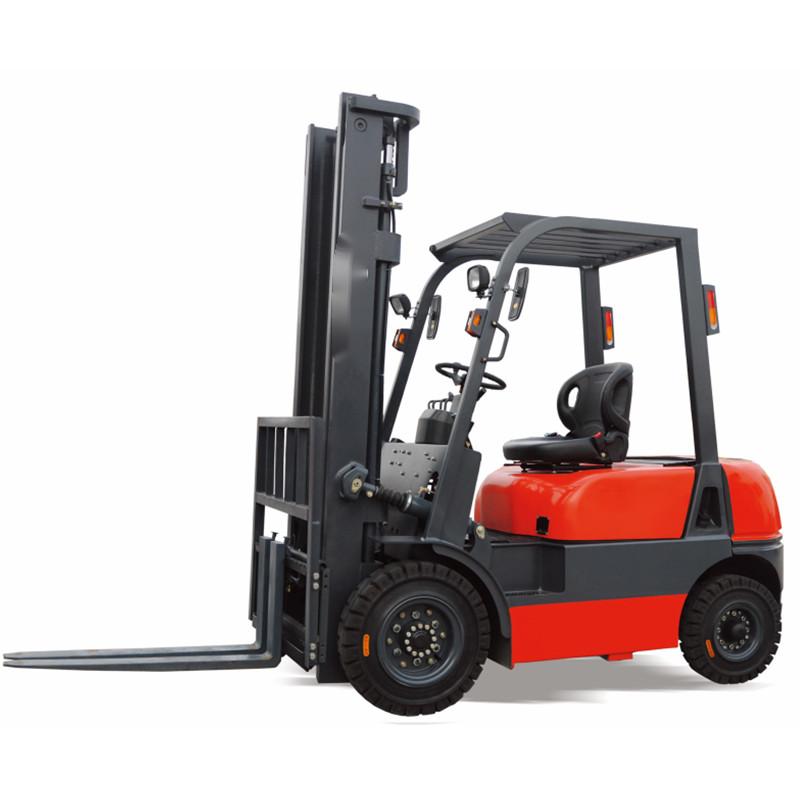The 3-ton fuel-powered forklift is a commonly used equipment in industrial handling, and it plays an important role in specific scenarios with its unique advantages.

In terms of applicable scenarios, it is very suitable for operations in open outdoor spaces, such as ports, freight yards, construction sites, etc. These places are usually spacious and well-ventilated, which can effectively disperse the exhaust gas generated by the fuel-powered forklift during operation. Moreover, in these places, long-term continuous operations are often required. Fuel-powered forklifts are convenient to refuel, which can be fully refueled in a few minutes, enabling them to quickly resume working status without delaying the operation progress due to charging issues. They are an ideal choice for scenarios lacking charging conditions.
In terms of performance, the 3-ton fuel-powered forklift has strong power. Its engine outputs large torque, and its full-load climbing ability is excellent, reaching more than 15°, showing stable performance when operating on sloped sites. It also has an advantage in endurance. Under full fuel condition, it can generally work for 10-12 hours, which can meet the needs of long-term and high-intensity operations. It has high reliability in heavy-load handling, long-distance transportation and other tasks, especially the torque characteristics of diesel models, which are very suitable for continuous heavy-load working conditions.
In terms of cost, the purchase cost of the 3-ton fuel-powered forklift is relatively low, 30%-50% lower than that of electric forklifts of the same tonnage, making it more acceptable for users with limited budgets. However, in long-term use, the fuel cost is relatively high, and there are more maintenance items, such as the need to regularly replace engine oil and filters, so the annual maintenance cost is higher than that of electric forklifts.
However, it also has some limitations. It will produce exhaust emissions during operation and has relatively large noise, usually 80-90 decibels. It is not suitable for operations in indoor or enclosed environments, otherwise it will affect air quality and cause noise pollution.


